| | |||||||||||||||||||||||||||||
| |||||||||||||||||||||||||||||
| |||||||||||||||||||||||||||||
| |||||||||||||||||||||||||||||
The Green Party of Aotearoa New Zealand male co-leadership election, 2015 was held to determine the future leadership of the Green Party of Aotearoa New Zealand. The election was won on the first ballot by first term List MP James Shaw.
| | |||||||||||||||||||||||||||||
| |||||||||||||||||||||||||||||
| |||||||||||||||||||||||||||||
| |||||||||||||||||||||||||||||
The Green Party of Aotearoa New Zealand male co-leadership election, 2015 was held to determine the future leadership of the Green Party of Aotearoa New Zealand. The election was won on the first ballot by first term List MP James Shaw.
In January 2015, Russel Norman announced his intention to stand down as co-leader of the Green Party. [1] This triggered an election to fill the now vacant male co-leadership.
James Shaw had been a List MP since 2014 and was ranked 12th on the Green Party list. He was the Greens' spokesperson for economic development, justice, trade and small business. He put himself forward as a candidate able to grow the Greens' party vote and strengthen its economic credentials in the minds of voters. [2]
Serving as a List MP since 2008, a former Chief Executive of the West Coast District Health Board and ranked 3rd on the party list, Kevin Hague had the most experience of the four nominees. At the time he was the Greens' spokesperson for ACC, health, housing, rainbow (LGBT) issues. He was seen by commentators as the "safe choice" as the most experienced candidate with the strongest record in Parliament. [2]
A List MP since 2010, Gareth Hughes was ranked 5th on the party list. He was serving as the Green Party's Musterer (whip) as well as their spokesman for energy, mining, ICT, and science. Hughes (aged 33) was seen as a choice representing a generational shift and was seen as the strongest voice on environmental issues, a key area of concern for the party. [2]
Vernon Tava was a member of the Waitematā Local Board, Green Party Auckland co-convener and was an electorate candidate for Northcote in 2011. Tava was pitched as an outsider (having never been an MP) and pledged a return to the party’s roots and core values as neither left nor right wing and placing the environment back at the top of party priorities. [2]
The voting was conducted via an STV vote by 127 party delegates from electorates across the country. The following table gives the ballot results: [3]
| Candidate | Votes | % | |
|---|---|---|---|
| James Shaw | 69 | 54.33 | |
| Kevin Hague | 56 | 44.09 | |
| Gareth Hughes | 1 | 0.78 | |
| Vernon Tava | 1 | 0.78 | |
| Majority | 13 | 10.23 | |
| Turnout | 127 | — | |
Shaw became the Green Party's third male co-leader and joined Metiria Turei in leadership duties. Shaw set himself the goal of making the Greens "more like modern New Zealand" and an ambitious target to expand the party membership to over 20,000. At the time the party had around 6000 members and he wished to double the membership of the party in a year, then double it again the following year. [4] By the time of the 2017 general election, Shaw was the sole Green Party leader; Turei resigned her co-leadership following public scrutiny of her announcement that she had committed benefit fraud in the early 1990s. [5]
Hague later admitted that losing was a "blow" and when he was approached by Forest & Bird, he decided to resign from the House of Representatives and take up the CEO role for that organisation instead. His resignation was announced in September 2016. [6] Vernon Tava later quit the Green Party altogether believing the party had lost its way from environmentalism and was becoming "too socialist". He joined the 2017 campaign team of National's East Coast Bays candidate Erica Stanford. [7]
The Green Party of Aotearoa New Zealand, commonly known as Green or the Greens, is a green and left-wing political party in New Zealand. Like many green parties around the world, it has four pillars. The party's ideology combines environmentalism with left-wing and social-democratic economic policies, including well-funded and locally controlled public services within the confines of a steady-state economy. Internationally, it is affiliated with the Global Greens.

Metiria Leanne Agnes Stanton Turei is a New Zealand academic and former politician. She was a Member of Parliament from 2002 to 2017 and the female co-leader of the Green Party of Aotearoa New Zealand from 2009 to 2017. Turei resigned from the co-leader position on 9 August 2017 amid a political controversy arising from her admission to lying to the Ministry of Social Development to receive higher payments when she was on the Domestic Purposes Benefit and later, to being enrolled to vote in an electorate where she was not eligible when she was 23.
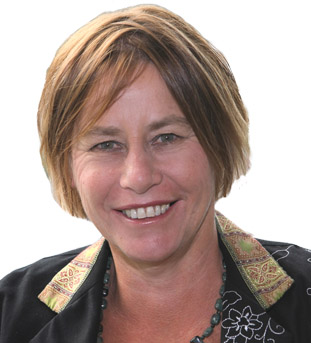
Sue Bradford is a New Zealand activist, academic, and former New Zealand politician who served as a list Member of Parliament representing the Green Party from 1999 to 2009.

Deborah Morris-Travers is a former New Zealand politician. She was a list MP for New Zealand First from 1996 to 1998.
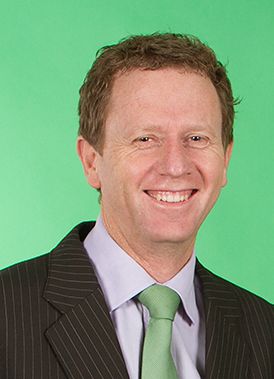
Russel William Norman is a New Zealand politician and environmentalist. He was a Member of Parliament and co-leader of the Green Party. Norman resigned as an MP in October 2015 to work as Executive Director of Greenpeace Aotearoa New Zealand.
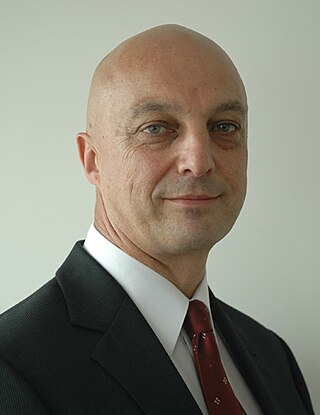
Kevin Grant Hague is a New Zealand public servant, activist and a former politician.

Kennedy Gollan Montrose Graham is a New Zealand politician and former Member of Parliament for the Green Party. He has served in the New Zealand Foreign Service for sixteen years, and lectured at the University of Canterbury and Victoria University of Wellington.

David James Clendon is a New Zealand former politician. He was a list Member of Parliament in the New Zealand House of Representatives for the Green Party of Aotearoa New Zealand from 2009 until 2017. He later served one term on the Far North District Council from 2019 to 2022.

Steffan John Browning is a New Zealand politician of the Green Party of Aotearoa New Zealand. He was elected as a member of the House of Representatives in 2011 and retired in 2017.

James Peter Edward Shaw is a New Zealand climate activist, businessman and former politician. He was a Member of Parliament from 2014 to 2024 and a co-leader of the Green Party of Aotearoa New Zealand from 2015 to 2024.
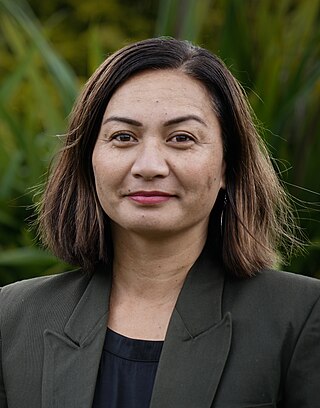
Marama Mere-Ana Davidson is a New Zealand politician who entered the New Zealand Parliament in 2015 as a list-member representing the Green Party of Aotearoa New Zealand, of which she became the female co-leader in 2018.

The 2017 New Zealand general election was held on Saturday, 23 September 2017, to determine the membership of the 52nd New Zealand Parliament. Parliament has 120 seats, and 71 were filled by electorate MPs, with the remaining 49 from ranked party lists. Writ day, i.e. the day when the Governor-General issues a formal direction to the Electoral Commission to hold the election, was set for Wednesday, 23 August 2017. As stipulated in section 127 of the Electoral Act 1993, the writ will set a date by which registered parties must submit a "list of candidates for election to the seats reserved for those members of Parliament elected from lists". Party lists must have been submitted by Monday, 28 August, at noon. On Wednesday, 30 August, the Electoral Commission released details of candidates for election, party lists, and the polling places. This page lists candidates by party, including their ranking on a list.
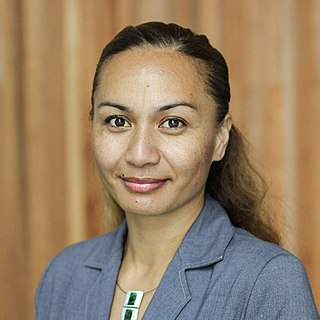
The Green Party of Aotearoa New Zealand female co-leadership election, 2018 is an election that took place between 26 March and 7 April 2018 to determine the future leadership of the Green Party of Aotearoa New Zealand.
The Teal Deal is a hypothetical blue–green political alliance between the Green Party of Aotearoa New Zealand and the New Zealand National Party. The term Teal Deal is a reference to the medium blue-green colour teal, which combines the political colours that represent the two parties.
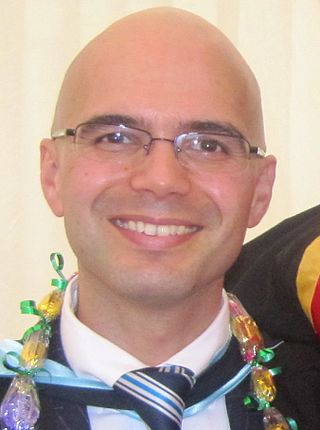
Vernon Ivan Tava is a barrister living in Auckland, New Zealand. He is the founder and leader of the Sustainable New Zealand Party and a former candidate for the Green Party of Aotearoa, New Zealand.
The 2021 Green Party of Aotearoa New Zealand male co-leadership election was held to determine the future leadership of the Green Party of Aotearoa New Zealand. The election was won on the first ballot by incumbent co-leader and List MP, James Shaw.
The 2024 Green Party of Aotearoa New Zealand co-leadership election was held following the resignation of James Shaw and was won by Chlöe Swarbrick.

The 2006 Green Party of Aotearoa New Zealand male co-leadership election was held to determine the future leadership of the Green Party of Aotearoa New Zealand. The election was won by the party's 2005 election campaign manager Russel Norman.

The co-leaders of the Green Party of Aotearoa New Zealand are the dual highest-ranking members of the Green Party caucus, chosen by the party membership to represent the party. The current co-leaders are Marama Davidson and Chlöe Swarbrick.

The 2009 Green Party of Aotearoa New Zealand male co-leadership election was held to determine the future leadership of the Green Party of Aotearoa New Zealand. The election was won by list MP Metiria Turei.